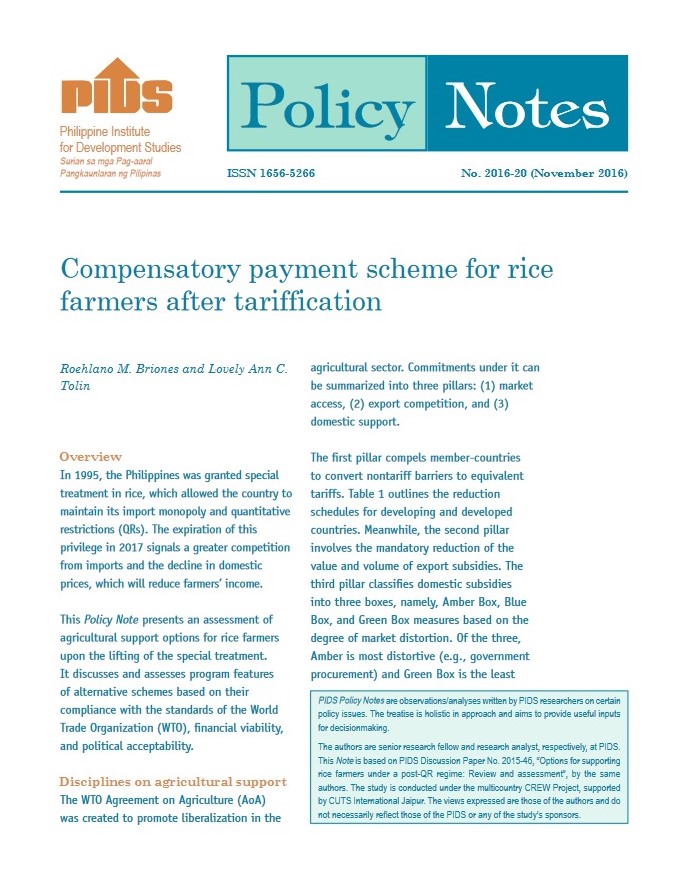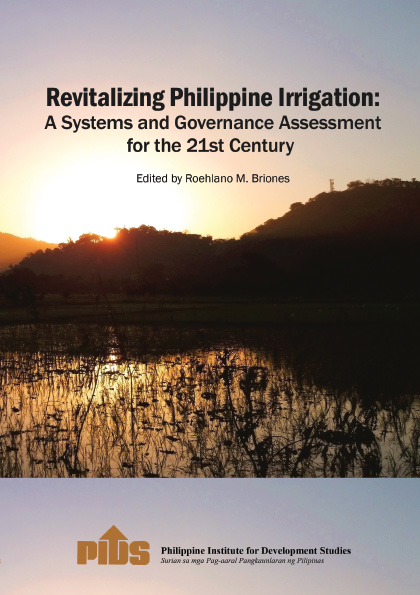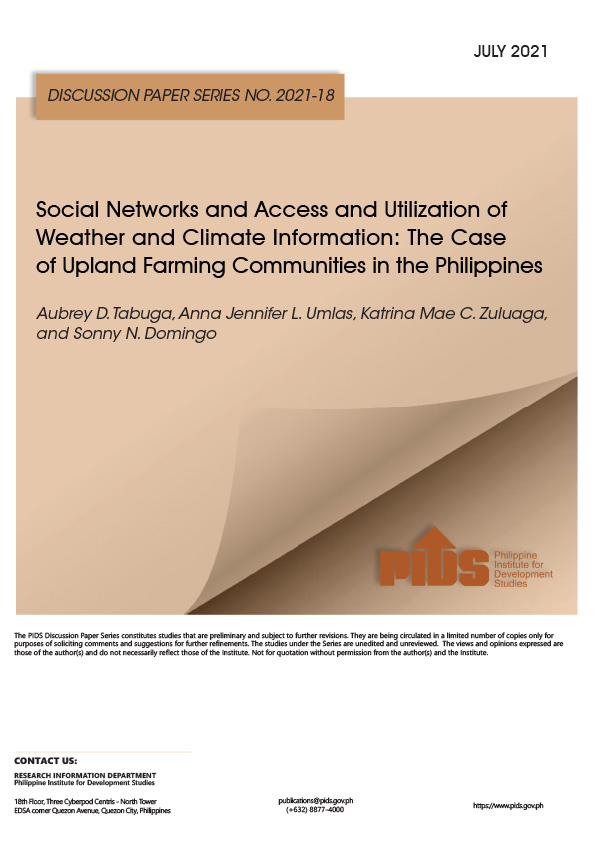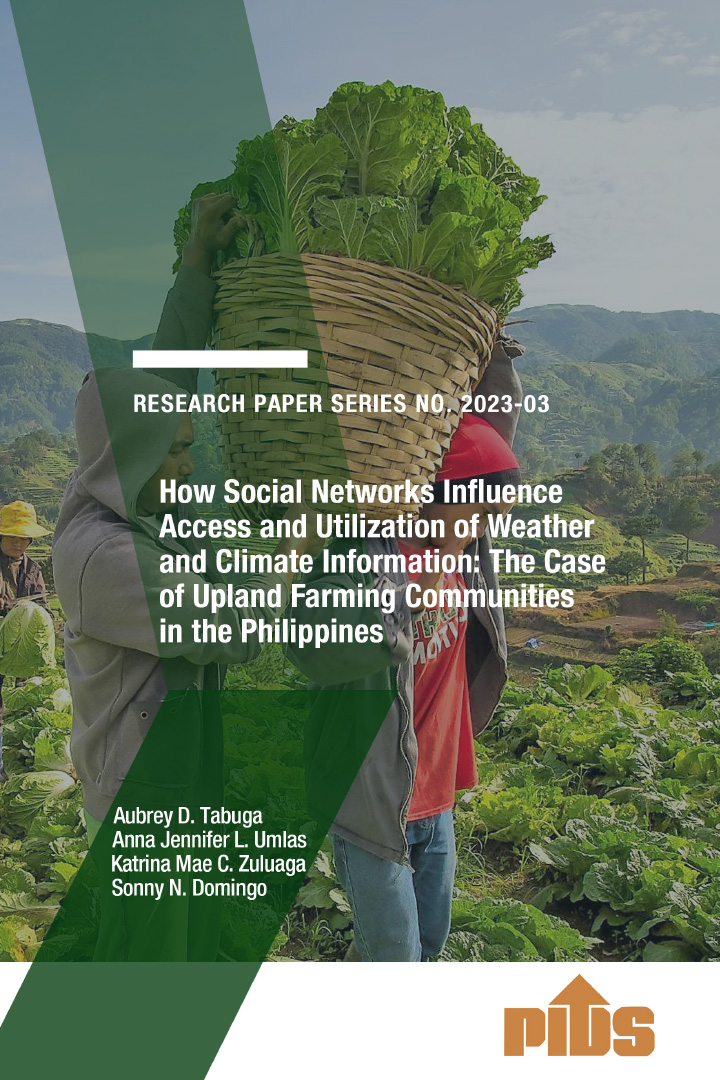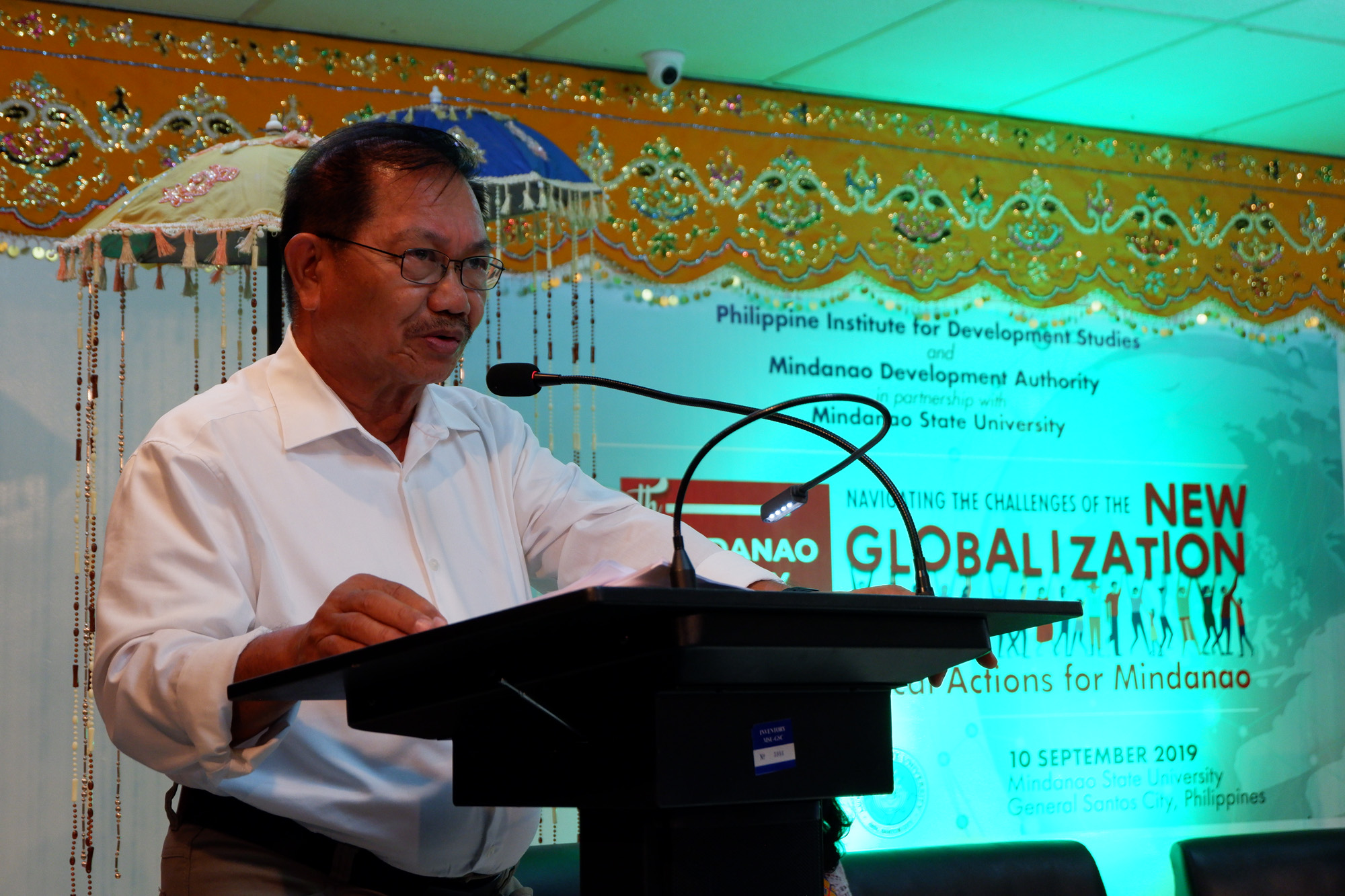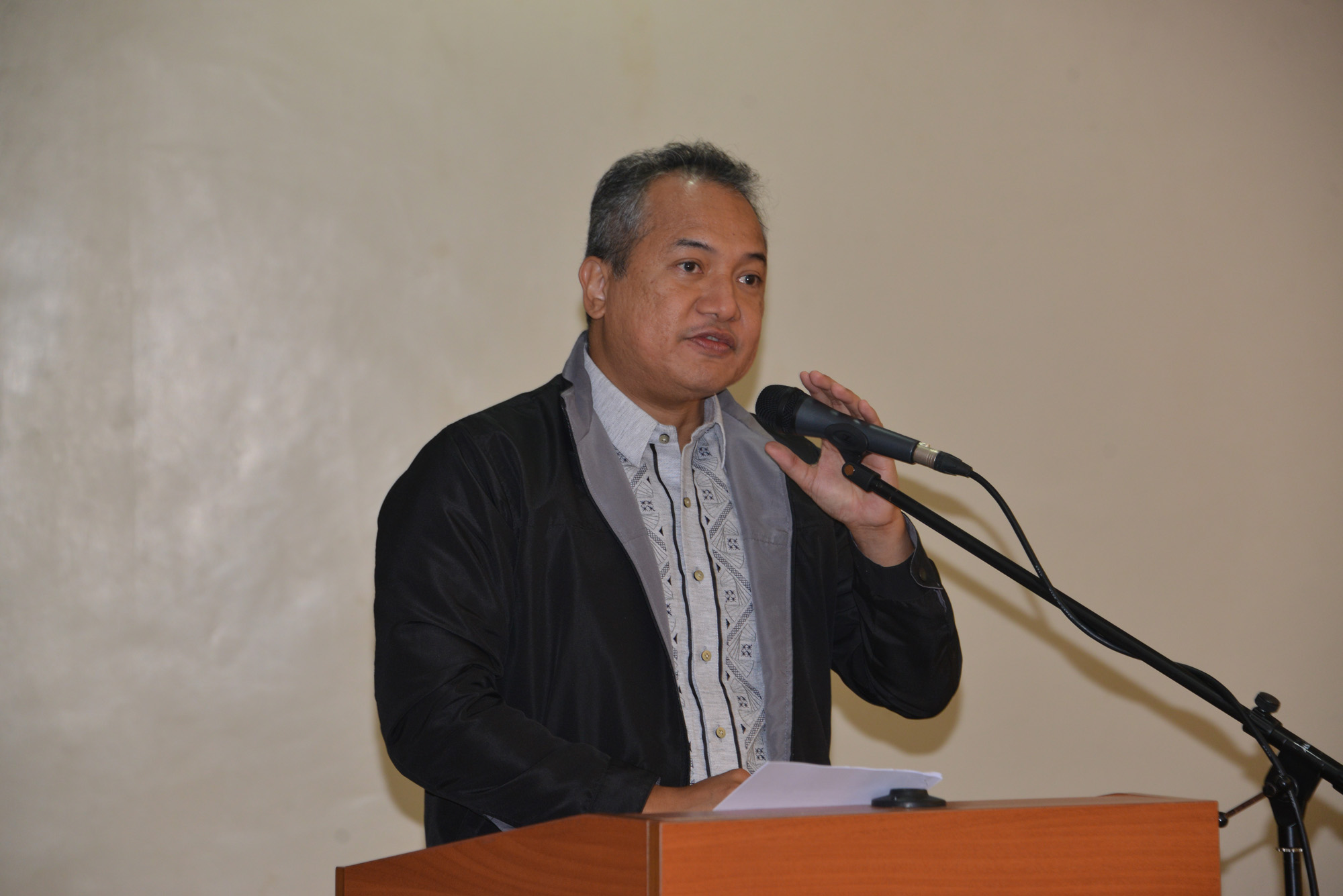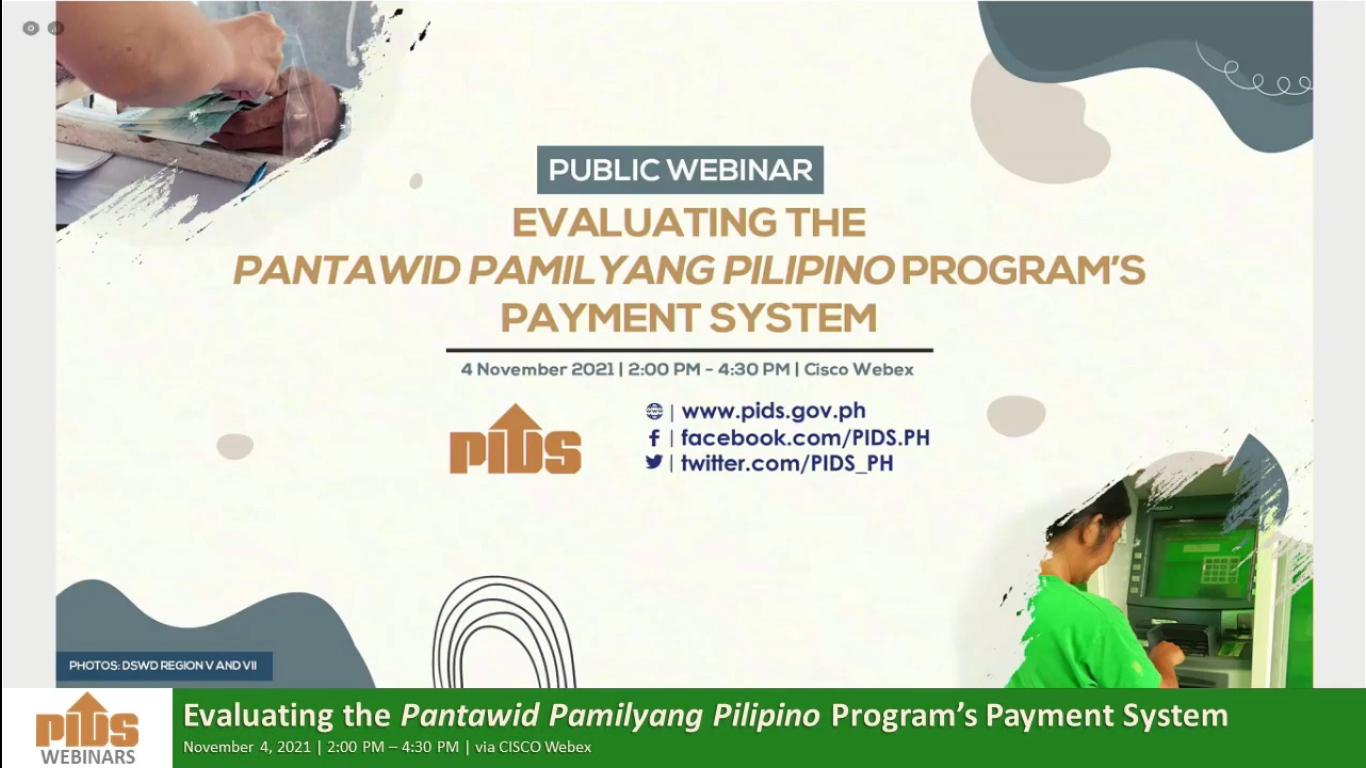In 2017, the special treatment in rice granted to the Philippines that allows the country to maintain its import monopoly will expire. This lifting is expected to result in massive fall in domestic prices, which will reduce farmers' income. This Policy Note assesses the agricultural support options for rice farmers upon the expiration of the special treatment. It identifies decoupled payment, a form of assistance to farmers in their transition to a free market, combined with a 35-percent tariff equivalent as a possible support. Assessment shows that this compensatory transfer scheme can operate at a feasible cost, with 35-percent tariff rate applied. It also finds earmarked rice tariff revenue as a feasible funding strategy to pay for the compensation scheme.
Citations
This publication has been cited 10 times
- 2017. . PIA.
- Casayuran, Mario. 2019. . Manila Bulletin.
- Domingo, Ronnel. 2019. . Philippine Daily Inquirer.
- Go, Laurence, Jessica Cantos, and AJ Montesa, . 2019. . BusinessWorld.
- Ignacio, Reicelene Joy . 2019. . BusinessWorld.
- Javier, Emil. 2019. . Manila Bulletin.
- Lazaro, Ramon Efren. 2019. . Philippine Star.
- Matining, Dindo. 2019. . Abante.
- Olea, Ronalyn. 2019. . Bulatlat.
- Vanne Elaine Terrazola . 2020. . Manila Bulletin.

